#no longer you
Text
The Dark Urge and "No Longer You" from Epic the Musical fit so well together.
Inspired by @sledgehammer-to-a-discoball's post
#credit where credit is due. I saw that post and was so inspired I learned to edit#baldurs gate 3#bg3#the dark urge#durge#baldurs gate 3 spoilers#bg3 spoilers#the dark urge spoilers#durge spoilers#durgetash#gortash#bg3 ketheric#ketheric thorm#bg3 gortash#enver gortash#orin the red#bg3 orin#sceleritas fel#bg3 bhaalspawn#bhaal#Dead Alfira#rip#epic the musical#epic the underworld saga#underworld saga#no longer you#edit#it took so long to find these clips with the dragonborn durge man
92 notes
·
View notes
Text
Tiresias: A horrible man will be with your wife
Odysseus:..... I am the monster rawr rawr rawr?
86 notes
·
View notes
Text
Odysseus heard “Yo I see a man next to your wife. Yeah he’s covered in blood and has killed a BUNCH of people.” And really went “Well I gotta make sure that’s me. No one else can be that but me, I’ll make sure of it.”
63 notes
·
View notes
Text
“WHO?!” Odysseus asked calmly
#odysseus#jorge rivera herrans#the odyssey#epic the musical#underworld saga#epic the underworld saga#no longer you
76 notes
·
View notes
Text
#epic the underworld saga#epic the musical#epic: the musical#epic the circe saga#the underworld#tiresias#underworld saga#no longer you#odyssey#odysseus#monster#epic#jorge rivera herrans
43 notes
·
View notes
Text
cute lil "no longer you" analysis
Ok guys so like we know how the oracle works? Yeah yeah yeah, they say smth and no matter what you do, it will come true because of what you do. However, there are different pathways obvs. So tiresias is like, "Yeah theres a lot of your journeys, odysseys if you will, and there are good an bad endings. I know there is a good ending here for you, but I dont know it here, it isnt yours." HOWEVER it could change. It isnt set in stone yet. He sings the prophecy. He sings what is most likely going to happen from this moment onwards, how in the musical Eurylochus stands up and is killed 'a brothers final stand' and the 'sacrifice of man' being scylla and how odysseus didnt do anything to prevent the death of the men. I think the 'last breath' is in reference to "Get in the Water" but it could also be when he washes up on Claypsos shore, although I doubt it cause thats a stretch. Cause like... yeah no.
Odysseus is like "Hold on. No thats not fair. We have been well, we have been using other means instead of violence so we can be fair, this ISNT fair! Then Tiresias goes on to recite more of this version of the prophecy, how Penelope will be reunited with a man who isnt anything like Odysseus is. NOW this is where it matters imo. This prophecy differs so heavily from the book, but in the book there is a choice. He tells the men to not eat any cattle they come across or else they will suffer from it and Odysseus will arrive home much later than what he would like. The option of choice is still there, eat the cattle or do not. Odysseus being doomed by the narrative has this choice screwed by his crew, but it was still presented to him none the less.
Epic doesnt go this route on a surface listen. There is no clear choice but the indication is still there. After Tiresia has finished the current prophecy, it comes down to Odysseus to place how the story will go. He could either "greet the world with open arms" and try beg Tiresia to tell him the other worlds and other prophecy's, or he could go down the path the Gods favour of anger and suffering. Upon hearing his wife is with a man "with a trail of bodies", he screams "who" with such desperation and anger which the audience has never heard before. Without even saying so, it has implemented and foreshadowed the vengeance and anger he holds to this man who has taken his wife. This is dramatic irony to the audience who knows what will happen, how he turns into this man. He doesnt hate him, he becomes him, so that he can seek vengeance on who Tiresia described. It also can be interpreted from the lines already presented by Tiresia that the man is Odyssesy, as his crew, the 558 men who died, trail behind him as 'the past is always close behind'. A trail of bodies which he met only a song prior to "no longer you". The "Who" line which Odysseus screams cements his fate, the anger and choice of bitterness athena steered him to and Poseidon reimplemented being chosen over the advice his dead friend gave him. This is when Tiresias repeats the first verse, the repetition illustrating how that world now is this world. It cements that there is no change to be done, Odysseus path will end in a trail of bodies which is greater than the one he already bears, and the sacrifices he must make in order to reunite with his wife while becoming something akin to the Devine whilst staying mortal, a monster.
#epic the musical#epic the underworld saga#jorge rivera herrans#odysseus#the odyssey#epic the circe saga#epic the ocean saga#epic the cyclops saga#tiresias#no longer you#just a man#monster
44 notes
·
View notes
Text
Unnecessary Underworld Saga thing that nobody asked for ever:
The Underworld:
- Warning the others immediately, thinking of them with everything going on
- Echoes and screams are all he can think of, talking about nightmares, haunted by his choices especially in the underworld
- All the men under his command, screaming his name, guilt, echoing Poseidon's words
- The idea that all of the men that died due to Poseidon are still screaming his name in hopes that he will safe them because he always painted himself as the rock of the army
- The anger they feel for his mercy of the Cyclops that led to their deaths, permeated with the helpless, desperate confusion of why their lives weren't as important as that of the Cyclops
- The fact that Odysseus managed to get all of them through the war but they died because of the decision he made to spare the Cyclops, meaning that if he hadn't chosen mercy they would have more likely still been alive
- Poseidon was right to say ruthlessness was mercy upon yourself, because then one does not have to feel the guilt if their choice of mercy was wrong, which is how Odysseus feels
- Can't even close his eyes to escape, because they're all around him
- Thinks of the infant he had to kill, guilt eating away at him - we ourselves cannot hear the infant because it was unable to even speak, so we hear it from Odysseus' own mouth, highlighting the remorse and guilt he feels for that one specifically
- Immediately hit with Polites right after his admission, the helpless way he says his best friend's name
- The soft way the music switches with this, emphasising the remorse and grief that comes with hearing Polites' voice
- The fact that the song is Polites talking about how amazing life is when one lets themself enjoy it, and it's a soft memory, because Polites was Odysseus' best friend, and Odysseus was (in his opinion) the cause of Polite's death.
- The idea that Odysseus lost sight of his best friend's advice, too lost in the war and caring about the others around him.
- The way Odysseus whispers Polites' name after hearing his echoey song, the pain in his voice at the loss of his best friend
- The small moment of silence before one hears that voice, the word 'waiting', and the surprised recognition in Odysseus' voice because he hadn't expected to hear it in this place of death
- His mother, who was always waiting the moment he left, who he didn't know had died and probably wouldn't until he had made it back home
- The idea that his mother was adamant on not dying until she saw her son again, and the pain that Odysseus feels as he whispers about 'taking too long'
- The pain in his voice as he murmurs 'mum' because he genuinely is shocked that she's here and he cannot comprehend that he wasn't back in time to see his mother
- How his mother must have felt on her deathbed, knowing that she wouldn't be able to see her son one last time before she died
- The gentle, almost hopeful melody that represents her hope that she would see her son again after the war was over, and the pain in Odysseus because he knows that he wasn't back in time to be there for her
- The fact that he still tries to soothe his mother even though he knows that she's gone and can't hear him, trying to reach out and tell her that he is there, even if he wasn't there when it was truly important
- More guilt as he realises that he will never see his mother because he took too long and went too far, the idea of the child leaving the mother's sight and never seeing her again
- The harmonising and repeating of 'waiting' from Odysseus, because now he will be the one waiting to see her again across life, and her still waiting for her son even in death, reassuring him that she will always love him despite everything
- The pause of the ocean and the sound of the boat moving as the voice fades out, leaving Odysseus with just his thoughts, the pain in his voice as he murmurs his last ever goodbye to his mother, and she can't even hear him
- The sharp rise in screams and the way that Odysseus screams the next lines, emphasising the guilt and anguish he's feeling through this journey, can't escape
- The fact that the others harmonise, because they must be seeing their own things as well, because they have been through so much as well -> What are they seeing that Odysseus isn't?
No Longer You:
- The prophet greeting them, because he knew they were coming, sounding solemn as he sings gracefully
- Solemn as he explains that there is a world where he does help Odysseus and his crew, but that is not a world that he knows, meaning he won't help them
- The confusion and accusation in Odysseus' response of 'what'
- The prophet saying that he does see the way that Odysseus does get home, through betrayal and hardship, seeing how he dies, then ripping it all away with the fact that Odysseus is no longer that man
- Brings it back to “Keep Your Friends Close” when Odysseus tries to say that everything has changed but he is still the same, and the prophet taking away that small security he had
- The pain and anger in Odysseus' tone as he speaks of how they have suffered just to get help from the prophet, and now they're being told that he won't help them
- The prophet proclaiming of how he can see Odysseus' home bathed in the blood of the men who thought him dead (reference to the hundred suitors who stuck around Penelope during his absence) and the fact that he sees Penelope with a man (doesn't say the name of the man, describes him as having a trail of bodies, most likely Odysseus)
- The utter rage in Odysseus' voice as he cries "who", because how dare someone take the last thing he has left keeping him going and so determined to get home
- The idea that this opera is the screams finally getting to Odysseus
Monster:
- The confusion of how everything has changed highlighting that he genuinely didn't see it changing, which is why its such a shock: suffering never ceasing, everything turning against the well meaning soldiers
- The once determined Odysseus now helplessly asking how he could ever see Penelope and his son again, showing that he is at a loss of what to do after suffering so much
- Asking if he needs to change to make something happen, after all of the effort he put into trying to stay the same; the final barrier being broken
- Being surrounded by all those deaths he believes himself to be responsible for, wondering if they're there because he was so stubborn in trying not to change
- Crossing everyone's lines but his own, the guilt in that recognition and idea that he may be the greatest threat, suddenly doubting himself and his views, wondering if it was all his fault
- Literally questioning everything about himself, blaming himself and calling himself a monster even with all of the pain he himself has been through to try and keep everyone safe
- Questioning if he has been too kind to those trying to harm him, and wondering if that impacted on those he tried so valiantly to protect
- Wondering if the Cyclops ever feels guilty for his murders and mistakes, or if he killed a few of Odysseus' men to avenge his fallen friend and feel confident in himself (the supposed monster reacting better than Odysseus to avenge his friend -> “Remember Them” instead of avenging them like the Cyclops did)
- Wondering if Circe is insane for protecting her nymphs by turning men to pigs, or if she changed to be colder and less guilty just so her nymphs didn't have to and she could protect them better (The idea that Odysseus was unable to change to save his men but the supposed witch was able to to protect those she cared about)
- Wondering if Poseidon feels fear when he kills the mortals for disrespecting him, or if he does what is necessary to protect himself by killing them as a warning to those and gaining respect that he needs (The idea that Odysseus was too scared to stop dissent within the army that could have him killed, while the supposed tyrant god did what he had to to ensure that people knew the consequences of disrespecting him)
- Wondering if the soldier using a wooden horse to invade Troy was vile, or if he was willing to put his own guilt aside to save the lives of so many others (The idea that Odysseus was so determined to stick to his moral code that he let hundreds die for it, while the supposed villain was willing to put aside his own moral code to save hundreds)
- So called monsters being able to do what Odysseus should have done
- Questioning what would happen if Odysseus became one of those so called monsters, doing whatever necessary to return home to his wife and child, as well as save the lady few men that he has under his command
- Odysseus echoing Poseidon's words emphasising a change in views, finally understanding what the god meant when he told Odysseus what he did, changing a character and finally ready to do it
- Listing all those he lost because he was too scared to change because he didn't know what would happen to him if it happened, guilt permeating it because he wonders if they would still be alive if he had changed
- The idea of not seeing his wife and son being the final straw for Odysseus, what pushes him across the line and breaks the final string holding together his moral compass; he will do anything to see his family again, no matter the cost
- willing to throw away his humanity so that he can see his family and keep others from dying, even going as far as saying that he is willing to kill another infant if it means they can do this, willing to go up against any gods and monsters
- He is willing to become the monster, finally willing to change and twist himself into something that nobody will recognise after everything that has happened to him; literally throwing away his humanity, warping into something else (like Circe)
- Knowing that he must become the monster in order to go home, questioning what the fuck is wrong with becoming the monster, finally allowing himself to be a lot more selfish
- Selfishness for himself over selfishness of others ruined him, so he's saying fuck it
- The last jarring sting emphasising the change of our hero to something unpredictable and monstrous
#four being a dumbass#jorge rivera herrans#the underworld saga#epic the musical#epic the underworld saga#the underworld#no longer you#monster#odysseus#the odyssey#penelope#polites#tiresias#i really like this saga#if it wasn't clear already
44 notes
·
View notes
Note
Now that underworld has been released and the first arc completed someone should run a best song tournament. It would be fun. (I’m hoping someone will see this and do it because I don’t have time to do it myself)
I’m actually in the middle of running that right now. So far No Longer You, Wouldn’t You Like, and Ruthlessness have won! I’m running the poll for Cyclops Saga now, and will do Troy Saga tomorrow!
31 notes
·
View notes
Text
"Friends, Circe's instructions were clear
No matter what we hear
Full speed ahead
Until we find the prophet
My comrades, this land confuses your mind
So no matter who we find-"
Dude take your own advice! Don't believe the prophet! Don't become a self fulfilling prophecy!
22 notes
·
View notes
Text
art dump!
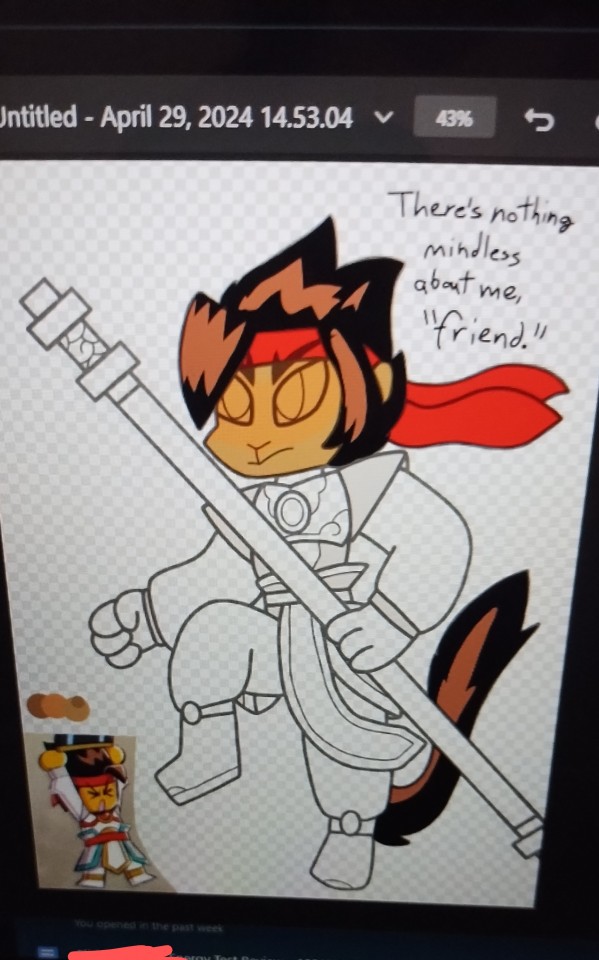


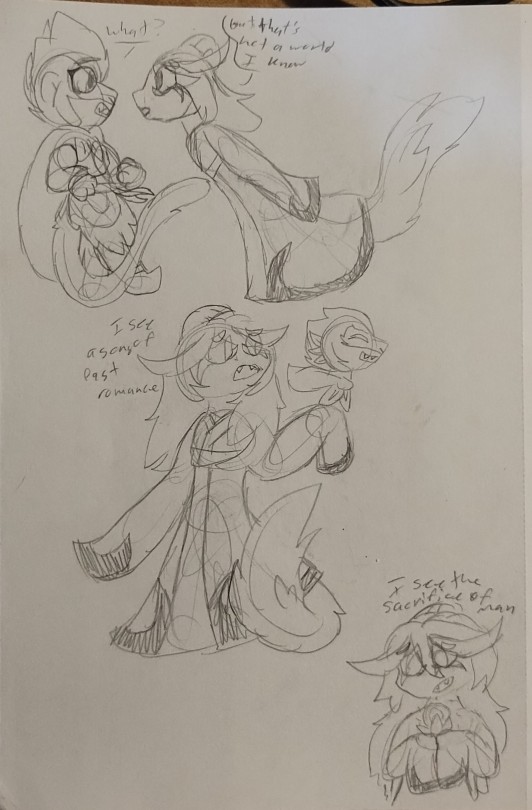
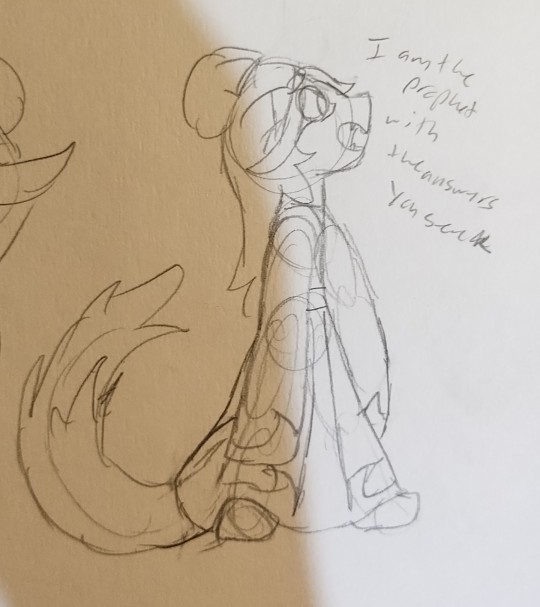
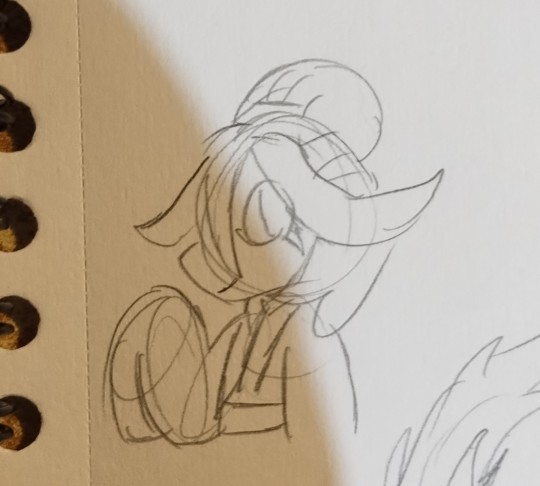
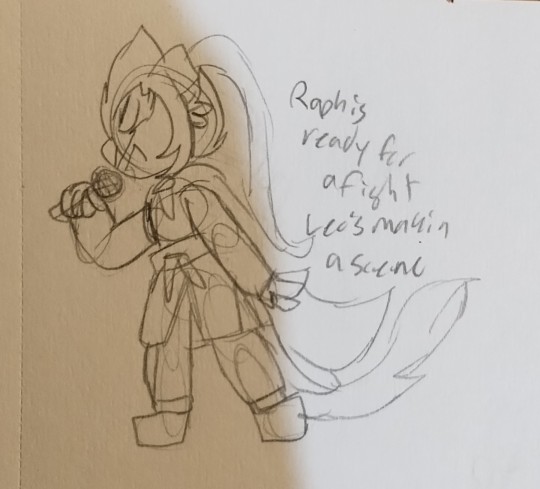
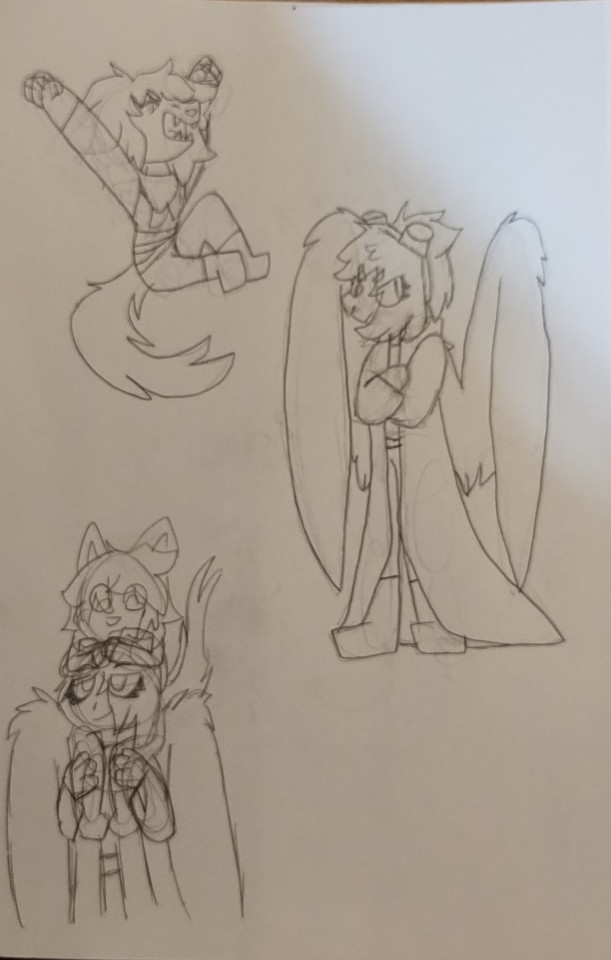
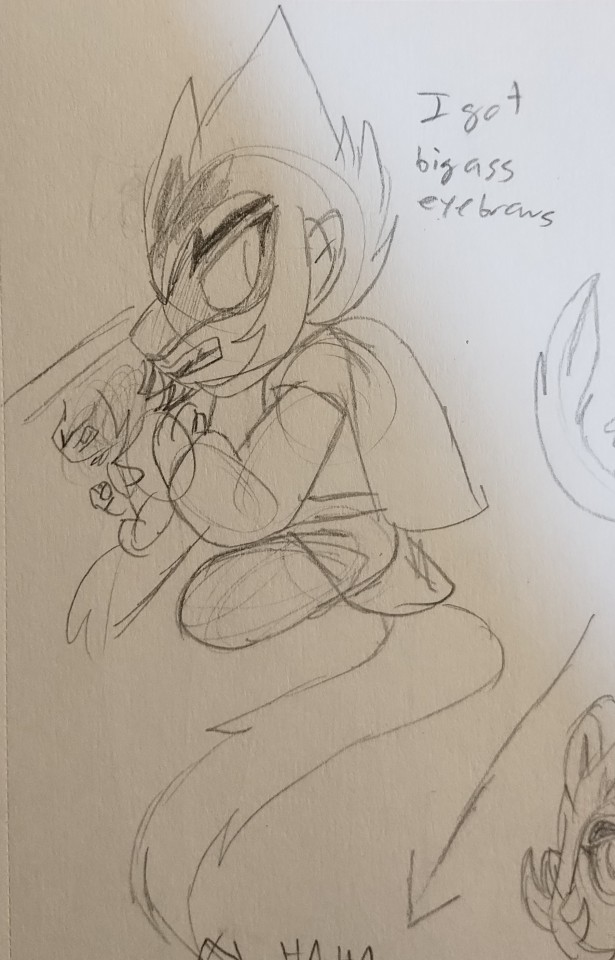






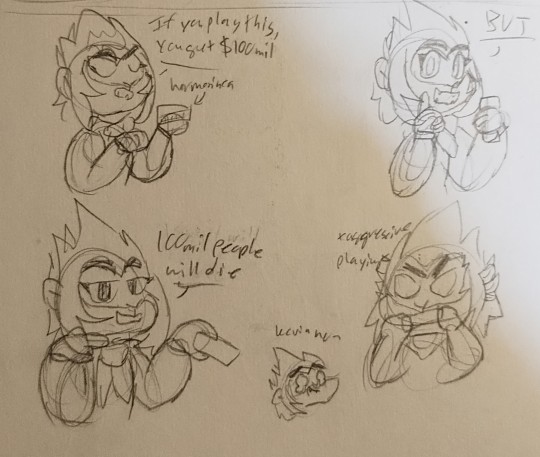

That's a lot of monkies
#lmk oc#lmk oc art#lmk monkey king#lmk fanart#lmk macaque#lmk sun wukong#lmk#lmk mk#lego monkie kid fanart#six eared macaque#lmk ao lie#ao lie#ao lie fanart#ao lie lmk#ao lie monkie kid#ao lie lego monkie kid#monkey king#wukong#lego monkey kid#macaque#epic the underworld saga#epic the musical#the underworld#tiresias#the underworld saga#polites#no longer you#wip#art wip#current wip
20 notes
·
View notes
Text
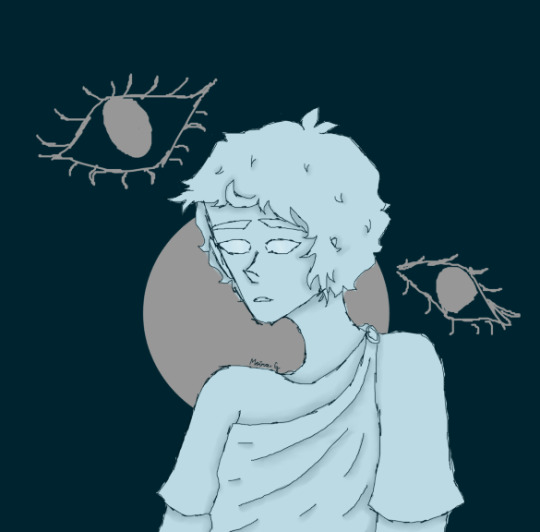
Octavian but in @praetorialreject 's 'Octavian as Tiresias AU' :P
#:3#mutuals#octavian hoo#heroes of olympus#pjo hoo toa#percy jackon and the olympians#octavian pjo#pjo octavian#tiresias#the underworld saga#epic the musical#epic the underworld saga#no longer you#the odyssey#my art#my art <33#octavian tiresias AU
15 notes
·
View notes
Text
Damn son calm down the one with a trail of bodies is still you
1K notes
·
View notes
Text

Odysseus in No Longer You.
985 notes
·
View notes
Text
Odysseus: WHO?!?!?!
Tiresias, just vibing: I see a song of past romance~
741 notes
·
View notes
Text
#epic the musical#epic: the musical#epic the underworld saga#the underworld#tiresias#underworld saga#no longer you#odyssey#monster#the underworld saga#odysseus#poll#my polls#random polls#polls#tumblr polls#tumblr poll#poll time#jorge rivera herrans#epic the circe saga#epic the ocean saga#epic the cyclops saga#epic the troy saga
22 notes
·
View notes
Text
Not the realization that Tiresias repeating his prophecy in No Longer You is him desperately trying to get Odysseus to heed his warnings after seeing the monster in him during his angry outburst of “WHO?!?!?”. The prophet knowing he can’t offer any reassurances that things will turn out alright, so all he can do is try to get Odysseus to understand what he’s already said.
#tiresias#odysseus#the underworld saga#epic the underworld saga#underworld saga#epic the musical#no longer you#🐍
262 notes
·
View notes